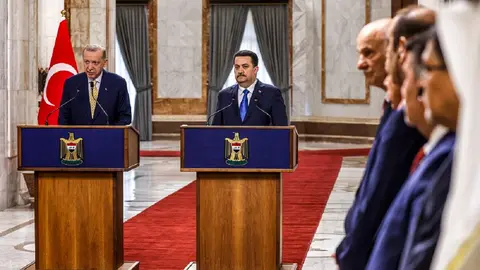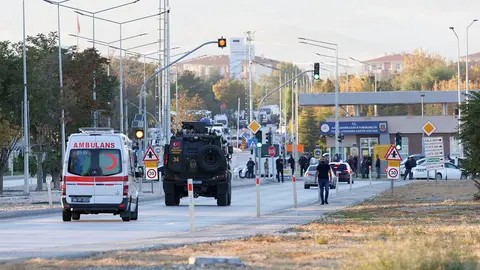Erdogan opens ‘window of opportunity’ to end Kurdish conflict
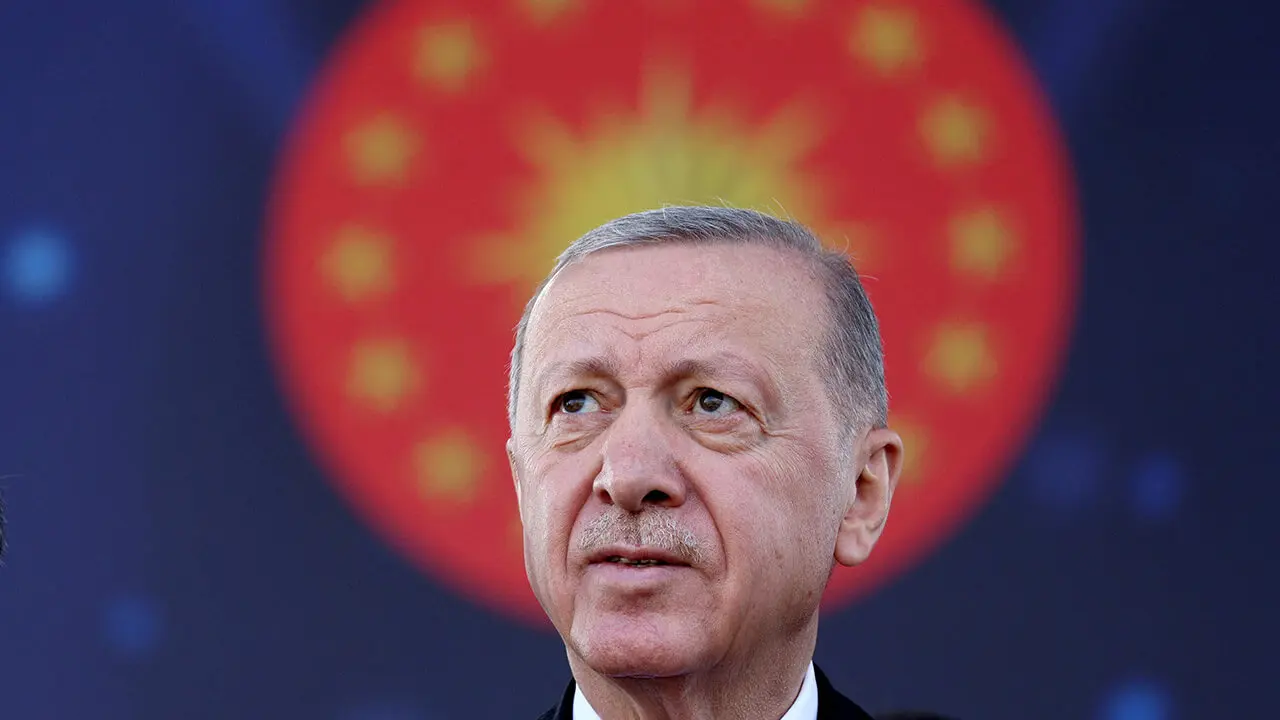
The Kurdistan Workers' Party (PKK) claimed responsibility for the attack on the headquarters of the state-owned TAI company, in which five people were killed and 22 injured. The previous day, Devlet Bahceli, head of Türkiye's ultra-nationalist MHP party, held out a surprising olive branch to imprisoned PKK leader Abdullah Ocalan, inviting him to parliament to renounce terror and disband his outlawed group.
Turkish President Recep Tayyip Erdogan on Wednesday expressed full support for his nationalist ally's appeal to Türkiye's Kurds, saying it opened a ‘window of opportunity.’
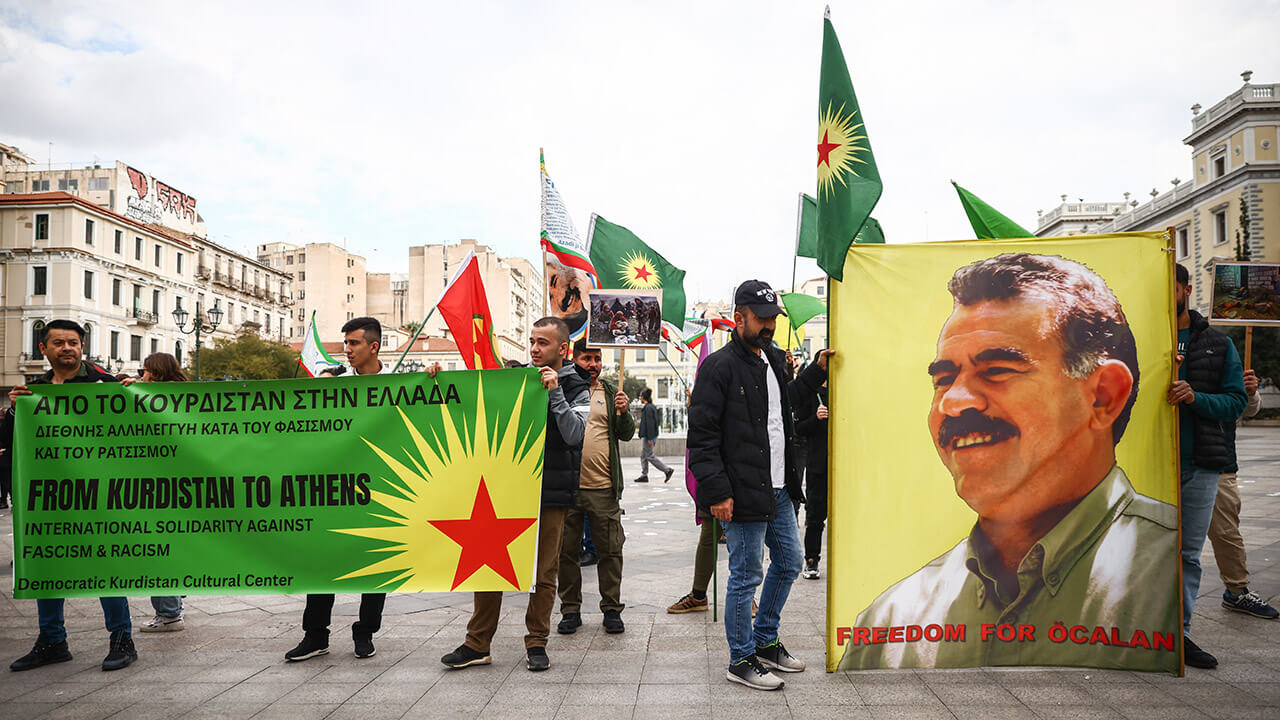
Erdogan's remarks were the latest and clearest sign that Ankara was seeking a rapprochement with the Kurds, despite last week's deadly attack on a Turkish defence company claimed by PKK militants.
The PKK, or Kurdistan Workers' Party, has been waging an insurgency against Türkiye for decades and is considered a terrorist organisation by Ankara and its Western allies. Türkiye routinely carries out attacks against Kurdish targets in northern Syria and Iraq. Bahceli said that PKK founder Öcalan, who has been serving a life sentence without parole in solitary confinement since 1999, should have ‘the right to hope’.

His statements were interpreted as a possible advance release. Bahceli, close to Erdogan and always hostile to the PKK, spoke of brotherhood: ‘Turks and Kurds must love each other, it is both a religious and political obligation for both sides’. Addressing lawmakers from his ruling AKP party on Wednesday, Erdogan gave his full support to Bahceli, saying the Turkish people see ‘the window of historic opportunity that has opened before us, and they are excited.’
‘My dear Kurdish brothers, we expect you to firmly grasp (Bahceli's) sincerely outstretched hand,’ Erdogan said, urging them to join efforts to build what he called the “century of Turkey.” ‘If God gives us the opportunity, we intend to remove (the conflict with the Kurds) completely from the national agenda,’ he remarked, saying it would be the “crowning achievement” of his political career.
But Erdogan said his appeal was not aimed at the ‘terror barons’ in Iraq and Syria. Following last week's attack, Turkish warplanes bombed PKK targets in northern Iraq and Syria.
‘Until the establishment of a terror-free country and region, we will continue this fight in various dimensions,’ the president insisted, citing ongoing operations. A day after Bahceli's initial statements, Öcalan, held on a Turkish island prison, was allowed his first family visit since March 2020.
Amid signs of softening, the main pro-Kurdish DEM party said on Wednesday it had held talks with the Justice Ministry about easing Ocalan's prison conditions.
‘There was a meeting with the Justice Ministry about lifting solitary confinement,’ Tuncer Bakirhan, co-chairman of the party, told reporters after a meeting of his faction in parliament. ‘The lifting of the isolation would benefit all of us because Ocalan is expressing ideas that will help lay the foundations for peace and democracy,’ he said.
Regional context
For Hamit Bozarslan, a Paris-based specialist on the Kurdish question, Türkiye's change of position is related to the escalation of conflicts in the Middle East. ‘One part of the government would like to engage in dialogue with the Kurdish movement, especially if the regional situation deteriorates and weakens Iran, which would have a definite impact on Iraq and Syria,’ he told AFP.
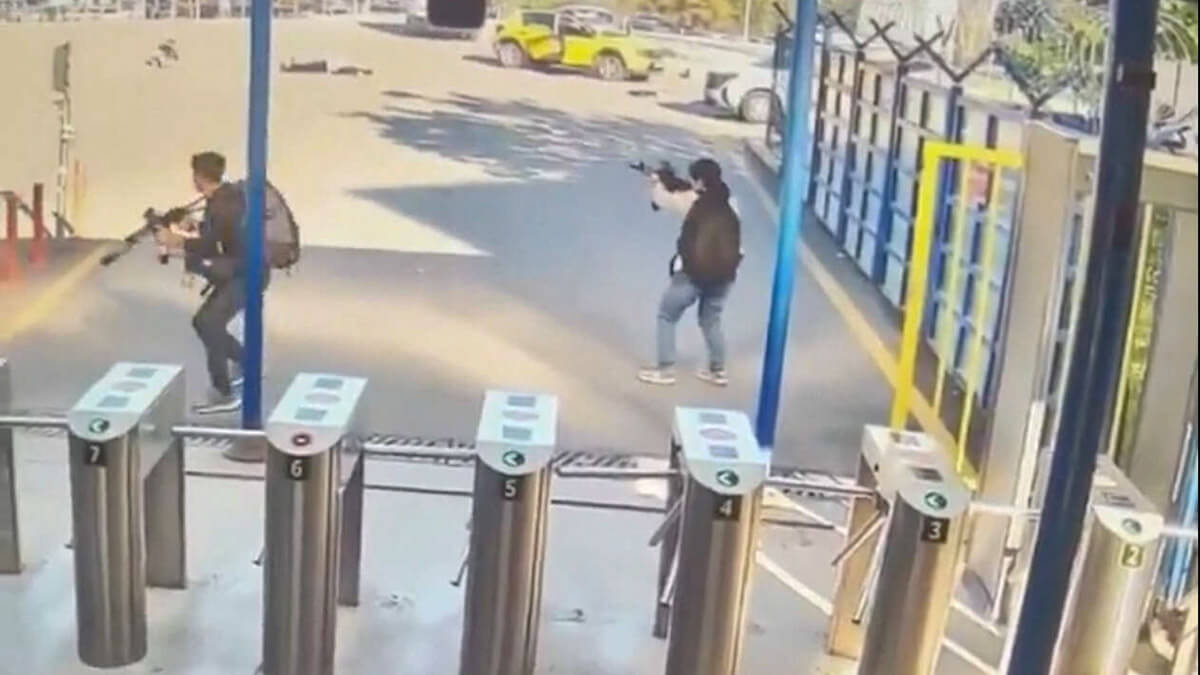
Both countries border Türkiye and are home to large and powerful Kurdish minorities. Türkiye and its Western allies have long considered the PKK, which has waged an intermittent insurgency against the Turkish state since 1984 in which thousands have died, to be a terrorist group.
However, the PKK attack in Ankara raises questions about Ocalan's power within the movement after more than 25 years behind bars. For Bozarslan, ‘Ocalan remains the key actor’ capable of ‘exerting its influence’ on any ongoing political process. But for Austria-based academic Yektan Turkyilmaz, after years without any ‘organic contact’ with the PKK leadership, it will be ‘a big challenge for Ocalan to impose a government-backed plan’ on the diverse Kurdish movement.
‘Ocalan is not only in the most difficult position of his entire career, but he is also at great, great risk because he has never managed to convince his own supporters to accept a peaceful political solution’ to the conflict, he said. ‘And the same could be said of the government,’ he added.
Observers say the government's move to reach out to the Kurds is related to its fear of a spillover of the conflict because of Israel's war against Hamas in Gaza and its assault on Lebanon.
According to Turkyilmaz, Ankara's rapprochement with the Kurds is an attempt to ‘strengthen’ the internal front to meet the regional challenge posed by Israel. But it was seeking an ‘opportunity’ to relieve pressure along its border with Iranian ally Syria, he said. After Israeli warplanes struck Iran in the early hours of Saturday morning, Türkiye called for an end to what it described as Israel's ‘terror,’ which had brought the region ‘to the brink of a major war.’

